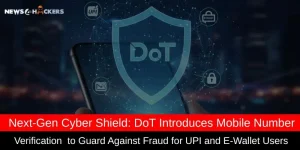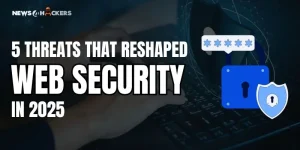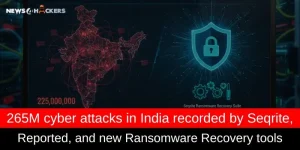AICTE’s Cyber Security Initiatives: A Deeper Dive

AICTE’s Cyber Security Initiatives: A Deeper Dive
A substantial amount of progress has been made by the Association for Information and Communication Technology (AICTE) in the direction of enhancing cybersecurity education and awareness in India. In addition to the fundamental steps, the AICTE has been significant in the following:
Curriculum Development and Integration
- Specialized Cyber Security Programs: With the help of the AICTE, educational institutions have been pushed to provide specialized undergraduate and postgraduate programs in cyber security. This will ensure that there is a competent workforce to battle new threats.
- Curriculum Enhancement: It has been decided to overhaul existing information technology and computer science curricula in order to incorporate fundamental cyber security ideas. This will result in graduates having a more well-rounded skill set.
Fostering Research and Innovation
| Research Grants | Through the provision of financial assistance, the AICTE has supported research projects that have been centered on the development of novel cybersecurity solutions and the addressing of key concerns. |
| Industry Collaborations | In order to bridge the gap between the academic world and the real world, partnerships with industry leaders have been formed, which has led to the development of research that is applicable in the real world. |
Capacity Building and Skill Development
- Faculty Development Programs: To improve the faculty members’ understanding of cyber security and to enable them to provide students with a quality education, the Association of Indian Colleges of Technology (AICTE) has held workshops and training sessions.
- Student Skill Enhancement: Hackathons, cyber challenges, and internships are some of the initiatives that have been encouraged in order to provide students with the opportunity to gain practical experience and develop their ability to solve problems.
Awareness and Outreach
There are several awareness campaigns duly run by AICTE’s Cyber Security Initiatives, such as the following:
Cyber Jagrookta Diwas
The Association for Information and Communication Technology (AICTE) has been essential in the development of awareness programs with the goal of educating the general public, and students in particular, about the risks associated with cyberspace and the preventative measures that may be taken.
Cyber Hygiene Guidelines
To motivate students and teachers to take part in secure activities while using the internet, the council has developed comprehensive guidelines on cyber hygiene. These rules are intended to motivate learners and instructors to participate in safe activities.
Infrastructure and Security Audits
- Mandatory Audits: As a means of identifying potential vulnerabilities and putting in place the appropriate measures, the AICTE has mandated that educational institutions undergo regular cyber security audits.
- Infrastructure Upgradation: Because of the importance of protecting sensitive data and systems, institutions have been strongly encouraged to make investments in comprehensive cyber security infrastructure.
Key Focus Areas
Several key focus areas have been honed by the Association for Information and Communication Technology, such as the following:
| Emerging Technologies | To improve the capabilities of cyber security, the Association for Information and Communication Technology (AICTE) is aggressively fostering research and development in fields such as artificial intelligence, machine learning, and blockchain. |
| Critical Infrastructure Protection | As a result of the AICTE’s recognition of the significance of safeguarding critical infrastructure, the organization is working toward the development of specific training modules and programs. |
| Public-Private Partnerships | It is being strengthened that collaborative efforts with business and government entities are being strengthened in order to cooperatively address concerns related to cyber security. |
Challenges and Opportunities
The efforts of the AICTE to strengthen cyber security education and awareness are met with a number of problems, including the following:
- Rapidly Evolving Threat Landscape: In order to keep up with the ever-increasing number of new dangers, students need to continually update their curriculum and improve their skills.
- Talent Shortage: Due to the fact that the demand for cyber security specialists is growing faster than the supply, a skill gap has been created.
- Infrastructure Limitations: For the purpose of facilitating efficient study and research, many educational institutions do not possess an acceptable cyber security infrastructure.
However, there are also significant opportunities:
| Growing Awareness | Because of the growing awareness of cyber risks, there is a growing demand for education and expertise in the field of cyber security. |
| Government Support | By implementing various policies and initiatives, the government creates an atmosphere that is favorable to the development of cyber security. |
| Potential for Innovation | The field of cyber security provides a wealth of chances for research and development, which can ultimately result in the development of ground-breaking solutions. |
Public-Private Partnership
The Association for Information and Communication Technology (AICTE), industry, and government must work together in order to effectively solve cyber security concerns. Other important areas of collaboration include:
- Curriculum Development: Curriculums that are relevant to the industry might be designed with the help of industry professionals.
- Skill Development: The employability of students can be improved through the use of joint training programs and internships.
- Research and Development: Research projects that include collaboration have the potential to result in novel solutions.
- Cyber Security Infrastructure: The cyber security infrastructure of educational institutions can be improved with the assistance of investments from the private sector.
Cyber Awareness and Education
For the purpose of preventing cyberattacks, it is essential to work toward increasing cyber awareness among learners, educators, and the general public. AICTE’s activities in this area include the following:
| Curriculum Integration | This involves incorporating notions of cyber security into a variety of academic curricula. |
| Awareness Campaigns | Workshops, seminars, and Internet initiatives are being offered in order to educate various stakeholders. |
| Cyber Hygiene Promotion | In order to safeguard individuals’ personal information, encouraging responsible online behavior is essential. |
| Cyber Ranges | Creating simulated cyber environments for the purpose of providing first-hand instruction. |
International Collaboration
Increasing the scope of cyber security education and research can be accomplished through the formation of partnerships with worldwide institutions and organizations. Among the most important advantages are:
- Knowledge Sharing: The sharing of knowledge and the most effective approaches.
- Joint Research Projects: Through collaborative research, addressing global cyber issues is being accomplished.
- Student and Faculty Exchange: To encourage the growth of talent on a global scale.
- Global Recognition: India’s reputation as a center for cyber security is being improved.
Measuring Success
For the purpose of determining whether or not the cyber security activities undertaken by AICTE are successful, it is necessary to define key performance indicators (KPIs). Examples of these include:
| Increase in cyber security graduates | Recording the number of students who successfully complete cyber security programs. |
| Improvement in cyber security skills | Evaluating learners’ and faculties’ cyber security skills and expertise. |
| Reduction in cyber incidents | Counting the number of cyberattacks that have been launched against educational buildings. |
| Industry placement rates | Watching the percentage of graduates in the field of cyber security who find work. |
| Research output | Evaluating the quality of research initiatives pertaining to cyber security and the influence they have. |
About The Author:
Yogesh Naager is a content marketer who specializes in the cybersecurity and B2B space. Besides writing for the News4Hackers blogs, he also writes for brands including Craw Security, Bytecode Security, and NASSCOM.
READ MORE ARTICLE HERE










